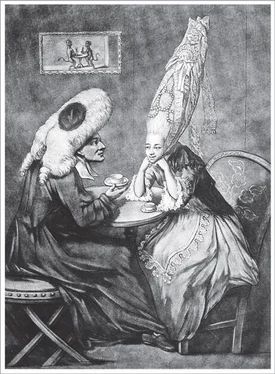Bill Bryson - At Home
Здесь есть возможность читать онлайн «Bill Bryson - At Home» весь текст электронной книги совершенно бесплатно (целиком полную версию без сокращений). В некоторых случаях можно слушать аудио, скачать через торрент в формате fb2 и присутствует краткое содержание. Жанр: Старинная литература, на английском языке. Описание произведения, (предисловие) а так же отзывы посетителей доступны на портале библиотеки ЛибКат.
- Название:At Home
- Автор:
- Жанр:
- Год:неизвестен
- ISBN:нет данных
- Рейтинг книги:4 / 5. Голосов: 1
-
Избранное:Добавить в избранное
- Отзывы:
-
Ваша оценка:
- 80
- 1
- 2
- 3
- 4
- 5
At Home: краткое содержание, описание и аннотация
Предлагаем к чтению аннотацию, описание, краткое содержание или предисловие (зависит от того, что написал сам автор книги «At Home»). Если вы не нашли необходимую информацию о книге — напишите в комментариях, мы постараемся отыскать её.
At Home — читать онлайн бесплатно полную книгу (весь текст) целиком
Ниже представлен текст книги, разбитый по страницам. Система сохранения места последней прочитанной страницы, позволяет с удобством читать онлайн бесплатно книгу «At Home», без необходимости каждый раз заново искать на чём Вы остановились. Поставьте закладку, и сможете в любой момент перейти на страницу, на которой закончили чтение.
Интервал:
Закладка:
The commissioners’ report fulmigated against those “who value parish support as their privilege, and demand it as their right.” Poor relief had become so generously available, the commissioners believed, that “it appears to the pauper that the Government has undertaken to repeal, in his favour, the ordinary laws of nature; to enact that the children shall not suffer for the misconduct of their parents—the wife for that of the husband, or the husband for that of the wife; that no one shall lose the means of comfortable subsistence, whatever be his indolence, prodigality or vice.” With a zeal that came perilously close to paranoia, the report went on to suggest that a poor working man might wilfully choose to “revenge himself on the parish” by marrying and producing children to “increase that local overpopulation which is gradually eating away the fund out of which he and all the other labourers of the parish are to be maintained.” He had nothing to lose from such a strategy after all, for his children could be put to work at home and “become a source of profit to the parents if the trade is good, and, if it should fail, they are maintained by the parish.”
To make sure that the poor were never rewarded for their idleness, the new workhouses were made as strict and joyless as possible. Husbands were separated from wives, children from their parents. At some workhouses inmates were required to wear prison-style uniforms. Food was calculatedly grim. (“On no account must the diet be superior or equal to the ordinary mode of subsistence of the labouring classes of the neighbourhood,” decreed the commissioners.) Conversation in dining halls and during hours of work was forbidden. All hope of happiness was ruthlessly banished.
Inmates had to perform hours of daily work to earn their meals and shelter. One common task was picking oakum. Oakum was old rope that had been heavily coated in tar to make it usable for ships’ caulking. To pick it was simply to disentangle strands so that they could be reused. It was hard and unpleasant work—the stiff fibers could inflict painful cuts—and agonizingly slow. At Poplar Workhouse in East London male inmates were required to pick five and a half pounds of oakum per day—a quota nearly twice that imposed on prison convicts. Those who failed to achieve their targets were put on a reduced diet of bread and water. By 1873, two-thirds of the inmates at Poplar were on short rations. At Andover Workhouse in Hampshire, where inmates were made to crush bones for fertilizer, they were said to be so permanently famished that they sucked the bones to get at the marrow.
Medical care almost everywhere was scant and reluctantly granted. Twenty years after the invention of anesthetics, workhouse patients commonly underwent surgery without them, to keep down costs. Disease was endemic. Tuberculosis—both phthisis, or consumption (which affected the lungs), and scrofula (which affected bones, muscle, and skin)—was notoriously rife, and typhus was a constant fear. Because children were so weakened generally, diseases that are now minor inconveniences were then devastating. Measles killed more children in the nineteenth century than any other illness. Whooping cough and croup killed tens of thousands more, and no place was more conducive to their spread than a stale and crowded workhouse.
Some workhouses were so bad that they generated their own diseases. One vague and chronic malady—now thought to have been a combination of skin infections—was simply called “the itch.” It was almost certainly due to lack of hygiene, though poor diet would have contributed, too. Dietary insufficiencies and poor hygiene made threadworms, tapeworms, and other sinuous invaders more or less universal. A patent medicine company in Manchester produced a purgative that was guaranteed to expel, faithfully and perhaps just a touch explosively, every last unwelcome parasite in the intestinal tract. One user proudly testified that he had brought forth three hundred worms, “some of them of Uncommon Thickness.” People in workhouses could only dream of such salvation, however.
Ringworm and other fungoid infections were endemic, too. Lice were a constant problem. One treatment was to soak bed linen in a solution of mercuric chloride and chloride of lime, which made the sheets poisonous not only to the lice but also to the unfortunates who slept on them. Inmates were also often roughly sanitized upon arrival. At one workhouse in the Midlands, a boy named Henry Cartwright was deemed so malodorous that the matron ordered him thrust into a solution of sulphuret of potash in an attempt to eliminate his body odor. Instead she eliminated the poor boy: by the time he was hauled out, he had suffocated. Authorities weren’t entirely indifferent to such abuses. At Brentwood, Essex, when a nurse named Elizabeth Gillespie threw a girl down a flight of stairs to her death, she was brought to trial and sentenced to five years in prison. Even so, physical and sexual abuse, particularly of the young, was widespread.
In practice, the workhouses could only hold so many people—no more than about a fifth of England’s paupers at any one time. The rest of the nation’s indigent survived on “outdoor relief”—small sums to help with rent and food. Collecting these sums was sometimes made almost impossibly difficult. C. S. Peel notes the case of an unemployed shepherd in Kent—“an honest and industrious man, out of work through no fault of his own”—who was required to make a round trip of twenty-six miles on foot each day to collect paltry relief of one shilling and sixpence for himself, his wife, and five children. The shepherd made the trudge daily for nine weeks before eventually collapsing from weakness and hunger. In London, a woman named Annie Kaplan, left to bring up six children after her husband died, was told that she could not support six children on the meager sum she was to receive and was instructed to nominate two children to send to an orphanage. Kaplan refused. “If four’ll starve, six’ll starve,” she declared. “If I have a piece of bread for four, I’ll have a piece of bread for six.… I’m not giving anybody away.” The authorities entreated her to reconsider, but she would not, so they gave her nothing at all. What became of her and her children is unknown.
One of the few figures who actively sympathized with the plight of the poor was also one of the most interestingly improbable. Friedrich Engels came to England at the age of just twenty-one in 1842 to help run his father’s textile factory in Manchester. The firm, Ermen & Engels, manufactured sewing thread. Although young Engels was a faithful son and a reasonably conscientious businessman—eventually he became a partner—he also spent a good deal of his time modestly but persistently embezzling funds to support his friend and collaborator Karl Marx in London.
It would be hard to imagine two more improbable founders for a movement as ascetic as communism. While earnestly desiring the downfall of capitalism, Engels made himself rich and comfortable from all its benefits. He kept a stable of fine horses, rode to hounds at weekends, enjoyed the best wines, maintained a mistress, hobnobbed with the elite of Manchester at the fashionable Albert Club—in short, did everything one would expect of a successful member of the gentry. Marx, meanwhile, constantly denounced the bourgeoisie but lived as bourgeois a life as he could manage, sending his daughters to private schools and boasting at every opportunity of his wife’s aristocratic background.
Engels’s patient support for Marx was little short of wondrous. In that milestone year of 1851, Marx accepted a job as a foreign correspondent for the New York Daily Tribune , but with no intention of actually writing any articles. His English wasn’t good enough, for one thing. His idea was that Engels would write them for him and he would collect the fee, and that is precisely what happened. Even then, the income wasn’t enough to support his carelessly extravagant lifestyle, so he had Engels pilfer money for him from his father’s firm. Engels did so for years, at considerable risk to himself.
Читать дальшеИнтервал:
Закладка:
Похожие книги на «At Home»
Представляем Вашему вниманию похожие книги на «At Home» списком для выбора. Мы отобрали схожую по названию и смыслу литературу в надежде предоставить читателям больше вариантов отыскать новые, интересные, ещё непрочитанные произведения.
Обсуждение, отзывы о книге «At Home» и просто собственные мнения читателей. Оставьте ваши комментарии, напишите, что Вы думаете о произведении, его смысле или главных героях. Укажите что конкретно понравилось, а что нет, и почему Вы так считаете.












